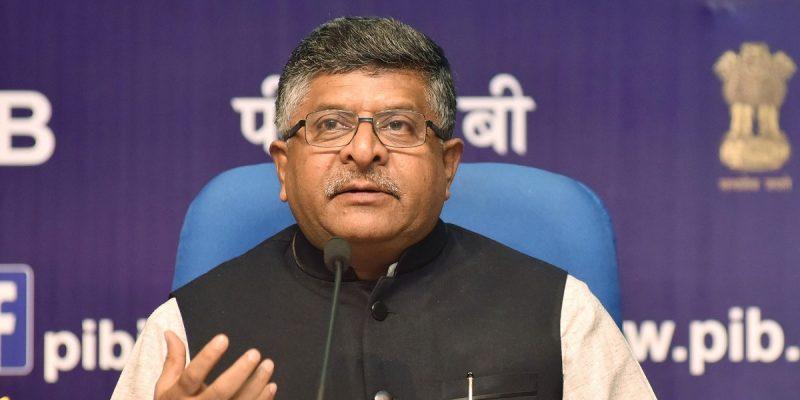NEW DELHI, June 16: Microblogging platform Twitter is all set to lose its “safe harbor” status in India though the government has not yet announced any action against it for its failure to comply with the centre’s intermediary guidelines which came into force on May 26.
Ravi Shankar Prasad, Minister for Electronics & Information Technology said in a statement posted on the social media platform on Wednesday that Twitter had failed to comply with intermediary guidelines and has “deliberately” chosen the path of non-compliance despite given multiple opportunities.
Lashing out at the social media platform Prasad said it was “astounding” that Twitter that portrays itself as the flag bearer of free speech, chooses the path of deliberate defiance when it comes to the Intermediary Guidelines. While Prasad questioned Twitter on its refusal to comply with the new IT Rules 2021, which were notified in February, he was non-committal on whether Twitter has lost its status as a social media intermediary.
Twitter issued a statement saying that it has appointed an “interim chief compliance officer” and will be sharing details with the Ministry directly soon. The statement adds that Twitter continues to make every effort to comply with the new guidelines.
The IT Ministry had questioned Twitter over not providing information about the Chief Compliance Officer as required under the rules. Also, the resident grievance officer and nodal contact person nominated by the company is not an employee of Twitter Inc. in India as prescribed in the rules, the Ministry had flagged.
“There are numerous queries arising as to whether Twitter is entitled to safe harbour provision. However, the simple fact of the matter is that Twitter has failed to comply with the Intermediary Guidelines that came into effect from the May 26,” Prasad said in a series of posts on homegrown microblogging platform Koo.
The Minister also tweeted on the issue.
“Further, what is perplexing is that Twitter fails to address the grievances of users by refusing to setting up process as mandated by the law of the land. Additionally, it chooses a policy of flagging manipulated media, only when it suits, its likes and dislikes,” he said.
The minister also mentioned the recent incident in Uttar Pradesh where a video of an old Muslim man being beaten went viral. Initially it was alleged that the man was forced to chant Jai Shree Ram, but later police investigation revealed that some of the attackers were from the same community.
Referencing the incident, Prasad said that, “What happened in UP was illustrative of Twitter’s arbitrariness in fighting fake news. While Twitter has been over enthusiastic about its fact checking mechanism, it’s failure to act in multiple cases like UP is perplexing & indicates its inconsistency in fighting misinformation.”
Prasad said Indian companies, be it pharma or IT or others that go to do business in the U.S. or in other countries overseas, voluntarily follow the local laws. “Then why are platforms like Twitter showing reluctance in following Indian laws designed to give voice to the victims of abuse and misuse,” the Minister questioned.
The culture of India varies like its large geography, he said, adding that in certain scenarios, with the amplification of social media, even a small spark can cause a fire, especially with the menace of fake news.
“This was one of the objectives of bringing the Intermediary Guidelines,” Prasad said.
Earlier this month, the government had given one last chance to Twitter to comply with the new IT rules and had issued a stern warning that failure to adhere to the norms would lead to the platform losing exemption from liability under the IT Act.
Prasad said the social media platform was given “given multiple opportunities to comply with the same, however it has deliberately chosen the path of non-compliance.”
The minister also alleged bias on behalf of Twitter and called it out for labelling some content as manipulated media, while not doing so with the other content. “Further, what is perplexing is that Twitter fails to address the grievances of users by refusing to set up process as mandated by the law of the land. Additionally, it chooses a policy of flagging manipulates media, only when it suits, its likes and dislikes,” he wrote.
The minister said India’s that “the rule of law is the bedrock of Indian society,” and the country’s “commitment to the constitutional guarantee of freedom of speech was yet again reaffirmed at the G7 summit,” but cautioned that “if any foreign entity believes that they can portray itself as the flag bearer of free speech in India to excuse itself from complying with the law of the land, such attempts are misplaced.”
(Manas Dasgupta)

